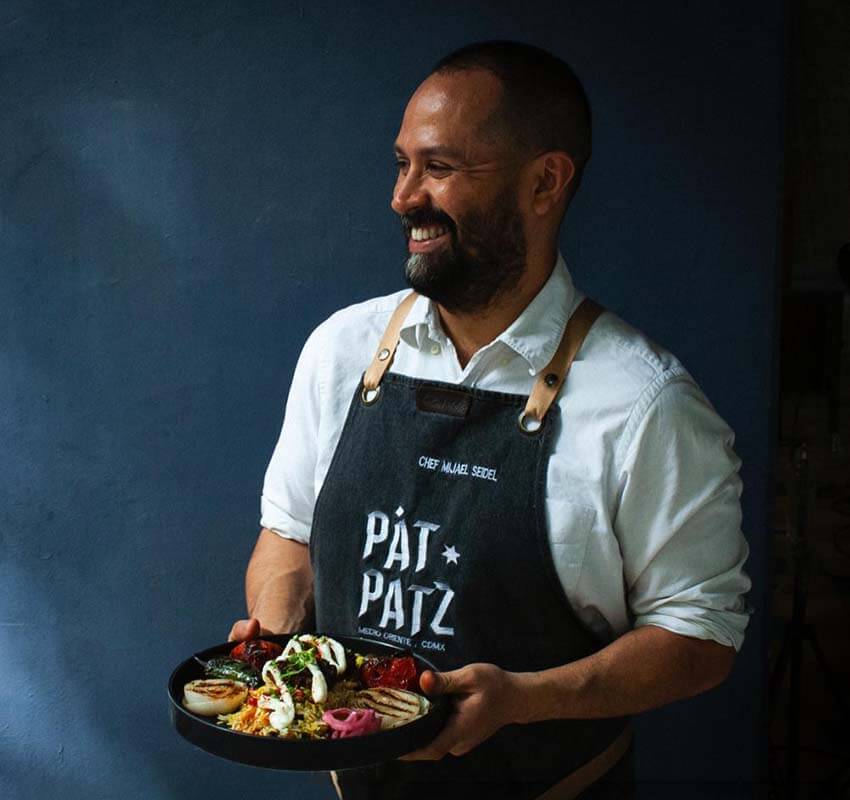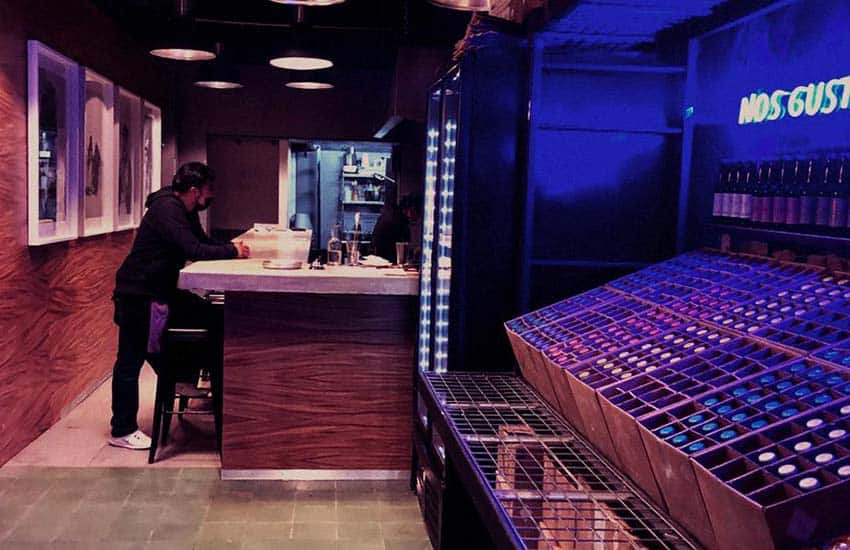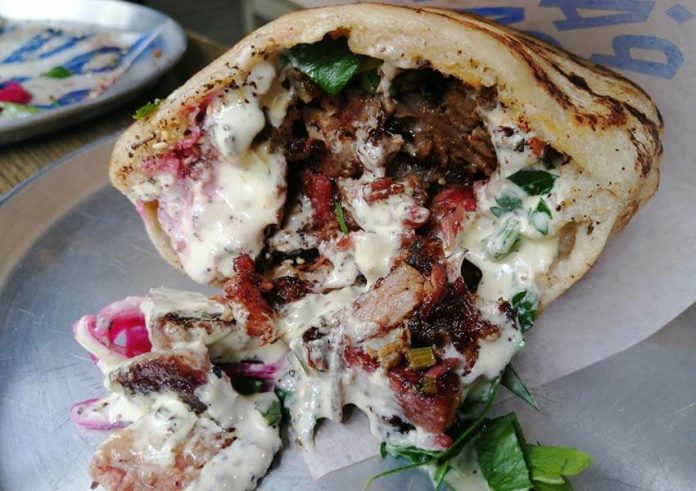It started with one man’s singular obsession for a plate of chicken.
“I moved to Astoria, Queens, and right out of the subway station on 31st Avenue, there was this food cart. As soon as you got off the train you could smell it, the chicken, and I was crazy about it. I probably ate there three times a week for the 10 years I lived in New York,” says Mijael Seidel, owner and head chef of Pat Patz restaurant in the Roma neighborhood.
The cart was the Palestinian-owned King of Falafel and Shawarma. Promising that he would be going back to Mexico and not be competition, Seidel offered to pay the owner, a man named Freddy, for that chicken recipe.
“He came back and said, ‘I can sell you the chicken recipe — for $7,000.’” Seidel’s infectious laughter gets the better of both of us. “And I only had like 1,000 saved, so …”
His personal quest, as he landed back in his native Mexico, became to discover that chicken’s secret.

He watched interviews of Freddy, who had become famous in 2010 after winning New York City’s Vendy street vendor award. He added and subtracted spices. He dug into cookbooks — and found a lot of guinea pigs.
“My mother had this rule: if you invite friends over, don’t cook anything you’ve never cooked before … and I was just doing the opposite every week.”
This all went on in the city of Colima, where Seidel founded a graphic design company with his then-wife. They were living in his native city to be closer to the beach and nature, but instead, Seidel found himself behind his computer. His mind would drift back to the foods he loved in New York as he reworked recipes in his head.
“[I needed] to verify that what I was making made sense in any way,” he says. “Is it close to the original? Is it far from the original? Because I knew that my flavor came from New York, and New York is already an adaptation. I remember when I was living in New York and trying to find Mexican food how nothing, even if it was cooked by Mexicans, tasted like it was supposed to. Sometimes the produce doesn’t have the same punch. You needed to add stuff to complement the flavor profile that the ingredients should have but they don’t.”
He cooked weekly meals at a friend’s kung fu dojo, sold falafel from an old hot dog cart, made ghormeh sabzi (Iranian stew) and shawarma in a local brewpub, all while seeking the flavors of his memories.
“When I was eight, this Israeli woman who was living in Colima made [hummus] and brought it to the house, and I was like, ‘This is great. It’s chickpeas, but they’re lemony and salty and tangy.’ That is actually the hummus I am trying to replicate now.”

The obsession had moved far beyond chicken at this point. For a decade, Seidel dissected falafel and experimented with perfect harissa. He discovered sumac and measured and remeasured the right proportions for lamb and beef kebabs.
Meanwhile, all his money was stolen at a catering event. He tore a muscle in his shoulder so badly he couldn’t cook, fought and broke up with his wife, fought and broke up with his business partner, lost the hot dog cart and his equipment, walked away from a takeout business and finally struck out on his own.
Now Seidel sits under Pat Patz’s terrace, packed this Sunday afternoon with diners. His smile is that of a man who is exhausted but happy — perhaps not surprising: he opened in March 2020, at the start of the COVID-19 pandemic, but the year also brought him an award from Food and Wine en Español, when in October they named him one of the year’s best new chefs.
“It’s a lot of work,” he says, immediately launching into his plans for chickpea shakes and Persian rice plates, as well as his dreams of an open grill and making kebabs from across the Middle East.
Of late, he’s accepting the nuances that make his food unique. A few years into his project, Seidel went to Turkey and Greece — to find the most traditional versions of his dishes.
“I kept thinking: mine is an adaptation. What does it taste like in its original form? So I was like, where are they doing the trendiest, most forward-thinking kebabs in Turkey right now? And I found some places that I liked — and I tasted the food, and it tasted like Pat Patz because the people behind the counter were North Africans living in Istanbul, sharing with Turkish people and combining ideas. And people liked it and were lining up.

“And of course I tasted the more traditional stuff, and I was like, ‘It’s good, but it’s missing the punch I’m used to.’ The same thing in Greece: [I found] a place that was a mix. It was run by Israelis, Palestinians and Greeks, and it was a different variation but the same highlights of flavors.”
The food at these places was good because it was an adaptation of an adaptation. So Seidel went with his gut, literally. Pat Patz today combines the flavors of the Middle Eastern immigrants that span the globe as well as the tang and punch he loves in Mexican cuisine.
“Nobody can come to my restaurant and say my kebab is too tangy or how come it has chiles in it because I discovered that … they can have all the stuff I am putting in them,” he says.
“This is just like how we used to make it at home,” a friend says about Pat Patz’s Israeli salad — a bright burst of tomato, cucumber, sumac vinaigrette and parsley. An Armenian who grew up in Boston fed by her Russian Jewish grandmother, she knows a lot about adaptations.
“This Moroccan girl once told me that she could finally move to Mexico because she had found something that reminded her of home,” Seidel says. “That kind of confirmed to me that I wasn’t so lost in what I was preparing.”
- Pat Patz restaurant can be found at Chiapas street #122B, Colonia Roma Norte. Contact them at 56 3257 3769.
Lydia Carey is a regular contributor to Mexico News Daily.
